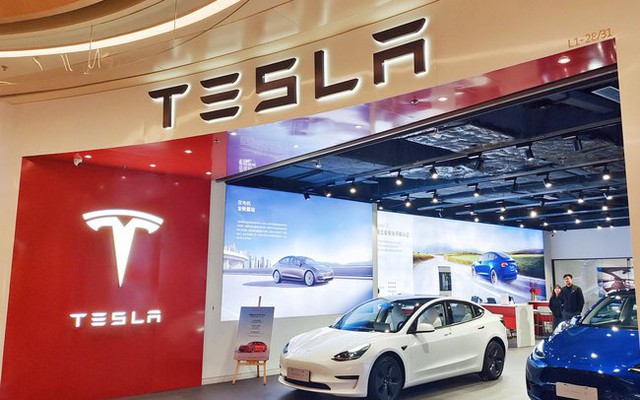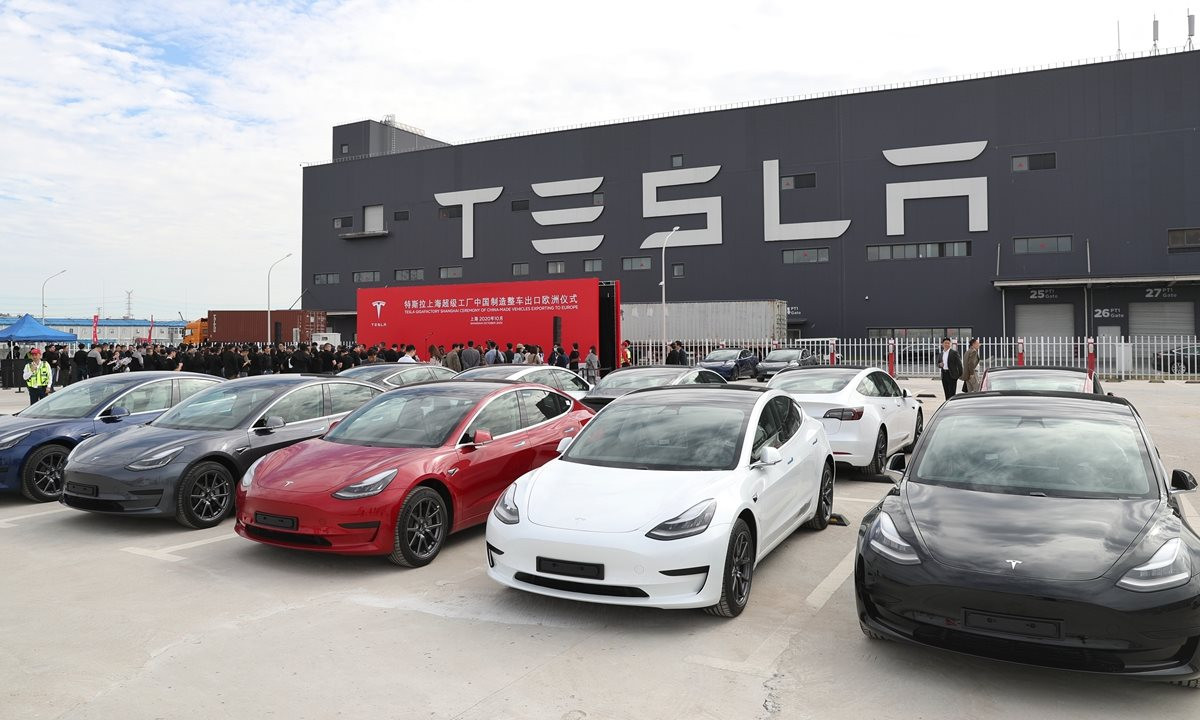Chinese people are especially fond of Tesla – Domestic electric vehicle manufacturers must also be “envious” to show off
- Tram Ho
Two-way relationship between Tesla and China

China aims to become an electric vehicle powerhouse. And it is the giant Tesla that is the driving force behind the growth of the Chinese electric vehicle market. Tesla’s massive Shanghai factory is working with local suppliers to produce complex components, thereby giving Chinese electric vehicle companies the ability to compete with Japanese and European companies. Europe.
Electric vehicles are central to President Joe Biden’s clean energy push. However, Tesla, a US-based company, has grown closer to the Chinese market.

Patrick Cheng, CEO of NavInfo, a Beijing-based autonomous driving and mapping technology company, said: “China is overtaking its rivals by shifting direction in the auto industry. used to be a factor of interest, but now is the time of the electric motor.”
Many CEOs and engineers at Chinese auto companies believe that the transition to electric vehicles presents many opportunities, similar to the previous internet boom, when Chinese companies Quoc created platforms like WeChat or TikTok.
That’s why the Chinese government has opened its arms to Tesla. They sell billionaire Elon Musk’s company cheap lands, provide loans, tax subsidies and many other incentives. They even allow Tesla to run its own factory without the need for a local partner.
The Beijing government is adopting a special business strategy, namely bringing in a big man to stimulate the development of small companies as well as startups.
This approach benefits both sides. In a meeting in October, billionaire Elon Musk said that the factory built within a year in Shanghai is more efficient than the factory in Fremont, California. “Giga Shanghai, is the factory of the best quality, the lowest cost,” emphasized the South African billionaire.
This is also a great opportunity for Chinese suppliers. Tesla said the Shanghai factory purchased 86% of Model 3 and Model Y components that were manufactured in China in the fourth quarter of 2020.
The soaring share price helped Tesla’s market capitalization hit the $1 trillion mark this year, on par with giants like Apple, Microsoft, Amazon, and more. James Li, a China analyst, said that Tesla’s strategies in the country played a key role in helping the company reach a value of $1 trillion.
“If Tesla doesn’t build a factory in China, will the company’s stock price increase much? Will their revenue improve?”, Mr. James Li said. In addition, the share prices of companies supplying materials and components to Tesla in China also increased.
Many people use Tesla as a motivation, many people find it “envious”
Many Chinese electric car manufacturers are not happy about the incentives that the country gives a foreign car company like Tesla. Some companies seek to compete by taking advantage of government control over how the Big Tech group’s data is handled.
Some of Tesla’s competitors in China include 360 and SAIC Motor Corp. In March, the two companies asked China’s legislature to handle national security concerns related to the foreign electric car maker, the target of which is Tesla.
Zhou Hongyi, founder of 360, said that China should apply regulations to reduce the collection of user information with foreign car manufacturers.
One sore spot for Tesla’s rivals in China is its policy of encouraging more electric vehicle production. Tesla is one of the companies benefiting from this policy.

Tesla used savings from working with Chinese supply chains to keep car prices cheap, just enough to help buyers receive government subsidies. In July, Tesla launched the Model Y sports car for less than 300,000 yuan (about $47,000) so customers could still receive subsidies.
Tesla’s recent move also caused a lot of damage to domestic manufacturers. As soon as Tesla decided to reduce the price, Chinese users immediately canceled orders with domestic car manufacturers.
Specifically, NIO delivered 10,059 units in October, down 7.5% from the previous month. Li Auto sold 10,052 cars, down 13%.
However, Musk himself is still popular in China. Chinese tech entrepreneurs see Musk as a role model. Some businesses even registered their product trademarks with the transliteration of his Chinese name – Ma Si Ke.
Because it is difficult to compete with Tesla at home, many manufacturers have decided to expand their investment in the international market. Neither inflation nor economic recession can stop them from moving forward with their plan to penetrate European territory.
Tesla’s competitors in the Mainland China electric vehicle market have massively expanded internationally such as NIO, XPeng, BYD, GEELY, etc. They are constantly launching new models, signing contracts with many dealers. more sales and construction of charging facilities amid the growing use of electric vehicles.
References: NYT, WSJ
Source : Genk
